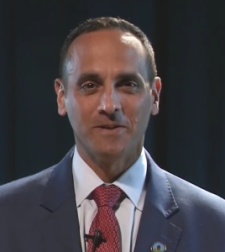
A Boston Globe journalist was forced to testify Tuesday in U.S. District Court in a case involving the Harvard admissions scandal. According to the Globe’s Shelley Murphy, politics editor Joshua Miller briefly took the witness stand and attested to the accuracy of quotes in an April 2019 article for which he interviewed the defendant, Jie “Jack” Zhao. Zhao has been charged with purchasing a Needham home at an inflated price owned by then-Harvard fencing coach Peter Brand so that Zhao’s two sons would be admitted to Harvard.
Miller’s compelled participation raises troubling First Amendment issues. Miller testified after a federal judge ruled against his motion to quash a subpoena. That’s not especially surprising. When faced with the prospect of requiring a journalist to testify, judges usually are more likely to rule against the journalist in a criminal case rather than in a civil matter, and they are more likely to rule against the journalist if they are not being ordered to reveal a confidential source. In this case, prosecutors merely sought Miller’s testimony so that they could enter his article into the record.
Nevertheless, the Globe’s lawyer, Jonathan Albano, cited in his motion to quash “the widespread recognition that the First Amendment protects journalists from the needless disclosure of sources, investigative techniques, and both confidential and non-confidential work product.”
Miller’s case also was the subject of a “friend of the court” brief filed by the Reporters Committee for Freedom of the Press, joined by 40 other media and legal organizations including the Center for Investigative Reporting, the Committee to Protect Journalists, Dow Jones, the First Amendment Coalition, the Freedom of the Press Foundation, Gannett, the Massachusetts Newspaper Publishers Association, McClatchy, MediaNews Group, the New England First Amendment Coalition, the New England Newspaper and Press Association, the NewsGuild, The New York Times, the Society of Professional Journalists, Tribune Publishing and others.
The Reporters Committee brief was submitted by First Amendment lawyer Robert Bertsche of the Boston firm Klaris Law. Perhaps the most notable aspect of his brief is that he observes the subpoena was not limited to asking that Miller attest to the accuracy of his article but, rather, was “open-ended.” In other words, if Miller was on the witness stand and was unexpectedly asked about confidential sources or reporting methods, he would either have to answer or refuse and thereby risk being held in contempt of court. Bertsche wrote:
Compelling reporters to testify about their communications with sources — even on-the-record, nonconfidential conversations — harms the newsgathering and reporting process, to the ultimate detriment of the public. It embroils reporters in time-consuming litigation and diverts news organizations’ already scarce resources away from newsgathering and reporting — burdens that weigh especially heavily on journalists who regularly investigate and report on matters that could involve potential criminal activity, and thus whose interviews and other work product could regularly be the target of federal prosecutors. Moreover, enforcement of subpoenas like the one at issue here threatens to erode public trust in the independence of the news media by creating the misimpression that journalists are an investigative arm of prosecutors and courts. That risk is particularly acute in situations where, as here, a journalist’s testimony is sought in connection with a criminal investigation launched after publication of the relevant reporting. Simply put, enforcement of government subpoenas that seek to compel journalists like Mr. Miller to testify in criminal trials risks making reporters’ existing and potential sources—both confidential and non-confidential — more reluctant to speak candidly, or simply unwilling to speak at all.
As I noted recently, Miller was subpoenaed not long after U.S. Attorney General Merrick Garland was hailed for announcing that reporters would no longer be compelled to testify in leak cases involving national security. This may be a matter of apples and oranges, but it’s notable that the stakes involved in demanding Miller’s testimony are considerably lower than the standard that Garland articulated. Yet that didn’t stop a judge from dragging a journalist into court.



